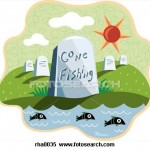Text: Matthew 16:24-26
Jesus said to his disciples, “If anyone wants to come with me he must forget himself, carry his cross, and follow me. For whoever wants to save his own life will lose it; but whoever loses his life for my sake will find it. Will a person gain anything if he wins the whole world but loses his life? Of course not!”
 When losers are winners
 Over the past years we have certainly had a good dose of hero worship. The high profile and the status that goes with winning a medal at the Beijing Olympic Games highlights how important winning is not only for the individual medal winners but also for the whole country. We know how much the Brits have delighted in getting more medals at the games than the Aussies. Winning is everything. Whether talking about the Olympics, football, cricket, a game of Monopoly or cards. The aim is to win and those who do win can brag about their skill, their abilities and expertise. Winners get all the glory.
Over the past years we have certainly had a good dose of hero worship. The high profile and the status that goes with winning a medal at the Beijing Olympic Games highlights how important winning is not only for the individual medal winners but also for the whole country. We know how much the Brits have delighted in getting more medals at the games than the Aussies. Winning is everything. Whether talking about the Olympics, football, cricket, a game of Monopoly or cards. The aim is to win and those who do win can brag about their skill, their abilities and expertise. Winners get all the glory.
Even for the spectators winning is everything. When a team is not winning, or even close to winning, no matter how hard the players are trying, the spectators are disappointed in their performance. That becomes so obvious when spectators start to leave before the game is even finished because they believe their team is not going to win. But when the team is winning the spectators are right there with the winners. Winners receive all the glory.
I don’t think the disciples were into football or cricket but they know from life experience that being a winner is what really mattered. No-one wanted to be regarded as a loser. That’s why the Jews were in constant revolt against their Roman rulers and even if it meant losing one’s life it was well worth the effort to make their enemies the losers and themselves the winners.
Jesus and the disciples were in the Roman holiday town of Caesarea Philippi. There, with the cool breeze blowing in their faces off the sea, Jesus drops a bombshell. He tells them that, not long from now, he must go to Jerusalem, he must fall into the hands of his enemies, he will suffer, and there he will die.
The shock is almost greater than his disciples can bear. And Peter, in typical style, speaks up for the rest of the disciples and rebukes Jesus. “God forbid it, Lord! That must never happen to you!” (By the way, the word “rebuke” is a strong word. We hear of Jesus rebuking unclean spirits, demons, and casts them out with authority. He rebuked storms to stop and be still. And so this is by no means a soft, gentle telling off. “Rebuke” implies authority. So you have the scenario of Peter, the disciple, rebuking Jesus as if he had greater authority and insight into how Jesus’ future should unfold).
According to Peter, if Jesus was ever going to be a winner he was going about it the wrong way. It’s clear that the disciple didn’t realise that God’s idea of who is a winner and how one becomes a winner is quite different to that of the rest of the world. God’s way of winning over sin and death involved suffering. Those who think they are winners in Jerusalem will be exposed as those who have lost all idea that right throughout history God has shown himself to be a reconciling God and whose love for humanity never gives up. Jesus will be publicly humiliated in the worst form of torture known to humanity. There will be blood and then death.
Peter had just answered Jesus question, “Who do you say that I am?” with “You are the Messiah, the Son of the living God”. This kind of talk about evil being stronger than good, enemies being more powerful than the Son of the living God, meant that Jesus would end up being recorded in history as the biggest loser of all time.
I think we can understand where Peter is coming from. Heroes are winners. Winners are not defeated by their enemies. Winners do not die on crosses.
Jesus in turn rebukes Peter saying, “Get away from me! You are thinking like everyone else and not like God!” In fact more accurately, Jesus says, “Get behind me, Satan!” This says something about what Jesus thought of Peter’s ideas. Maybe Peter’s words reminded Jesus of his temptation by Satan in the wilderness when Satan tried to get Jesus to take the easier and more glorious path to being a hero. People would flock to him after seeing him float down from the heights of the Temple roof and, accompanied by an angel or two, land safely in the courtyard below.
The fact that Jesus speaks so strongly to Peter indicates that what he is about to say is very important. “If anyone wants to come with me he must forget himself, carry his cross, and follow me. For whoever wants to save his own life will lose it; but whoever loses his life for my sake will find it. Will a person gain anything if he wins the whole world but loses his life? Of course not!”
Have you noticed what Jesus has done here? He has moved the focus of the conversation away from himself and what lay ahead of him to the disciple and what lay ahead of those who follow Jesus. The path of forgetting oneself is not only for Jesus, but also for those who follow him. You must forget yourself, and you must take up your cross and follow.
What Jesus is saying here is so radical and different to our usual way of thinking and acting. We are so used to ‘looking out for number one’ and the attitude that ‘my needs are more important than anyone else’s’ that Jesus’ words fly in the face of the self-seeking and self-importance that is so common in our world.
“Forget yourself” – that’s even radical for Christians because we know just how difficult this is. These are difficult words – “forget yourself, your needs, your ideas, your plans, your need to impress, your fears, your need to be highly regarded in the sight of others, your whatever, and be my disciple”.
Now we could do what we usually do with anything that is too hard – ignore it, or water it down, somehow make it a bit easier to swallow.
Or we could do just as it says, that is, to follow his example of letting go of being so “me” focussed, and put God and his kingdom first.
Nothing, no matter how sacred, is permitted to come between ourselves and God. We place ourselves at his disposal.
His plans are our plans,
his will is our will,
his ways are our ways.
In our lives we are committed to only one thing – focused on being Christ-like in our relationships with others, dedicated to being truly his disciples, committed to following God’s way and not those of the world, faithful to God’s will that love would be our guide in every circumstance. Make no mistake about it, Jesus is saying to his followers, ‘Becoming a disciple is a radical step and being a disciple demands your commitment to forget yourself as crazy as this might seem to everyone else’.
And Jesus goes on to give the formula for the ultimate loser. ‘Take up your cross’, not the cross of Jesus, but your own cross.
The words, “Take up your cross” can rightly be understood in the narrower fashion. This includes the sense of accepting the “cross” of poor health, grief, loneliness, job loss and so on in the same way that Jesus was able to endure the suffering and pain of the cross with the knowledge that he had a loving heavenly Father who could be counted on.
However, this phrase “take up your cross” seems to have the broader and even more positive meaning of sharing with Christ in the work of showing love and compassion. Jesus has placed the burden on all of our shoulders
to care as he cared,
forgive as he forgave,
heal as he healed,
comfort as he comforted,
encourage as he encouraged,
accept others as he accepted others,
follow God’s ways as he did,
suffer as he suffered,
and give sacrificially as Jesus gave sacrificially.
Each of us must take up our cross and follow him.
Note the way Jesus uses the word “must” when talking about his journey to Jerusalem. Just as the Son of Man must be rejected, must suffer and must die and rise again so must his disciples take up their cross and follow. This little word “must” indicates that it is God’s will that Jesus take up the cross of suffering and humiliation and likewise it is God’s will that we must take up our cross.
In November 1992 five nuns were killed in the country of Liberia on the west coast of Africa. The nuns had been missing for about a week near Monrovia. That area was controlled by the National Patriotic Front – rebels who were trying to seize control. “These nuns, who were all experienced missionaries in Liberia either in education or health-care ministries, had been brutally shot to death. Their bodies were apparently left where they had fallen – three at their compound in a suburb of Monrovia and two on the road several miles away.”
Is this what discipleship is all about?
Is this the cross Jesus is talking about – being so focussed and committed to God’s Kingdom that the consequences don’t matter?
Is he saying that it is possible that we will experience rejection and humiliation when following Jesus is more important that anything else?
Does this mean that success in God’s eyes is not what we earn,
what we have,
what position we have in the community or the church,
or what “pious” lives we have but that the cross of love, service, sharing with the needy, welcoming the stranger, blessing those who persecute you, never taking revenge and answering evil with good? (See today’s reading from Romans 12:9-21 for Paul’s description of a life focussed on discipleship Jesus’ way).
I don’t know how you feel, maybe it’s the same as I feel, but every time I read or preach on this text, I wonder whether I really deserve the title ‘disciple’, ‘member of God’s family’, ‘follower of Jesus’. Jesus’ description of discipleship is tough, demanding, radical. How can I ever match that kind of expectation?
The plain and simple answer is that none of us can. That’s not minimising Jesus’ call to forget oneself, take up our cross and follow him but it is acknowledging that our human nature will always get in the way of this kind of discipleship. I take heart from the disciple Peter who really messed up big time when his commitment to Jesus as a disciple was challenged in the courtyard of the High Priest. When Jesus was being led through the courtyard, he knew what Peter had done. His eyes were filled with nothing but love and compassion for the Peter’s wounded spirit.
That’s why Jesus said he must be rejected, must suffer and must die and rise again – to bring forgiveness and grace into the lives of his disciples who find themselves failing again and again. It is the cross that makes us losers to be winners. “While we were still sinners, Christ died for us” (Rom 5:8). Jesus died so that we might have forgiveness, hope and courage as we go out and take up our cross and follow Jesus.
We may stumble in carrying the cross of discipleship, we may not carry out God’s plans for our community as we should, we may not be as committed and as focussed as we ought to be, nevertheless God is calling each of us to forget ourselves, forget our failures because Jesus died to give us forgiveness and new starts, take up our cross, follow him and serve in whatever way God has gifted us.
It is said winners are grinners, in Jesus, losers are the winners and so they are the grinners.
Amen


